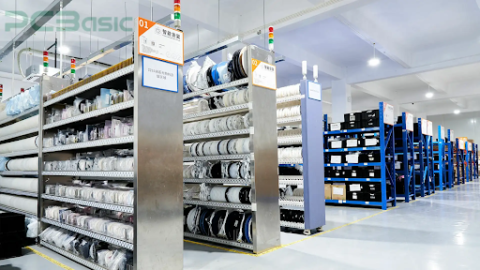Introduction to Wowza Gradle Plugin
The Wowza Gradle Plugin is a powerful tool designed to streamline the development process for Wowza Streaming Engine projects. Whether you’re developing custom modules, plugins, or managing complex builds for large-scale streaming services, integrating Wowza with Gradle simplifies repetitive tasks. Gradle’s flexibility and Wowza’s robust streaming infrastructure make the combination an ideal solution for developers looking to increase efficiency in their workflows.
What is Gradle?
Before diving into how Wowza integrates with Gradle, let’s briefly explore Gradle itself. Gradle is an open-source build automation tool that simplifies the creation, management, and automation of tasks within software projects. It combines the best features of earlier tools like Apache Ant and Maven, offering flexibility, efficiency, and scalability.
Developers use Gradle for various purposes including compiling code, packaging binaries, running tests, and even deploying applications. With a rich ecosystem of plugins, Gradle extends its capabilities to fit the needs of any project—whether it’s a small library or a large-scale enterprise application.
Why Use the Wowza Gradle Plugin?
Using the Wowza Gradle Plugin simplifies the task of managing Wowza Streaming Engine builds and deployments. It automates key aspects of project development, allowing you to focus on coding and innovation rather than manual configuration.
Here are some key reasons to use the Wowza Gradle Plugin:
- Automation: Automatically handle routine tasks like building, testing, and deploying custom Wowza plugins.
- Efficiency: Gradle’s incremental build feature ensures that only the modified parts of the code are recompiled, reducing build time.
- Flexibility: Easily customize build scripts to meet your specific project needs.
- Streamlined Deployment: Integrate deployment into your build process, reducing manual errors and ensuring consistency across environments.
- Improved Debugging: Simplify the testing and debugging of Wowza applications by incorporating Gradle’s testing tools.
Setting Up Wowza Gradle Plugin
1. Installing Gradle
Before you start working with the Wowza Gradle Plugin, ensure you have Gradle installed. If you haven’t installed Gradle, follow these steps:
- Download the latest version of Gradle from Gradle’s official website.
- Extract the files and add the
bindirectory to your system’sPATHvariable. - Verify the installation by typing
gradle -vin your terminal or command prompt.
2. Configuring Your Project
Once you have Gradle installed, follow these steps to configure your Wowza project:
- Create a
build.gradlefile in the root directory of your Wowza module or project. - Add the Wowza-specific dependencies that will allow Gradle to manage your Wowza project.
groovyCopy codeplugins {
id 'java'
}
repositories {
mavenCentral()
}
dependencies {
compileOnly 'com.wowza:wowza-streaming-api:4.8.0'
testImplementation 'junit:junit:4.12'
}
- Define the Wowza plugin tasks for building, testing, and deploying your Wowza modules. This can be done by adding custom tasks in your
build.gradlefile to fit your project needs.
3. Writing Custom Wowza Modules
Once you’ve set up the basic Gradle configuration, you can start developing custom Wowza modules. Wowza Streaming Engine allows developers to extend its functionality by creating Java-based plugins. Using Gradle’s build automation will ensure that your plugins are compiled and packaged efficiently, ready for deployment.
Here’s an example of a basic custom Wowza module:
javaCopy codeimport com.wowza.wms.module.ModuleBase;
import com.wowza.wms.client.IClient;
import com.wowza.wms.request.RequestFunction;
public class CustomModule extends ModuleBase {
public void onAppStart(IClient client, RequestFunction function) {
getLogger().info("Wowza application started.");
}
}
With Gradle, you can automate the process of compiling this module, running unit tests, and deploying the plugin to your Wowza Streaming Engine server.
Building and Deploying Wowza Plugins with Gradle
1. Building the Plugin
To build your Wowza module or plugin using Gradle, simply navigate to your project directory and run:
bashCopy codegradle build
Gradle will compile the source files, run any unit tests, and package your Wowza plugin into a JAR file ready for deployment.
2. Deploying to Wowza
Deploying the custom Wowza plugin can be automated by creating a Gradle task for deployment. Here’s a basic example of how to create a Gradle task for deploying a Wowza module to your server:
groovyCopy codetask deploy(type: Copy) {
from('build/libs')
into('/path/to/wowza/modules')
}
Running the deploy task will copy your plugin’s JAR file into the correct directory on your Wowza Streaming Engine server.
3. Running Tests
Testing your Wowza plugins is an essential part of ensuring they work as expected. Gradle integrates with various testing frameworks like JUnit, making it easy to automate testing. Add test cases to your Wowza module and run them using Gradle:
bashCopy codegradle test
This will execute the test cases and provide detailed feedback on any errors or failures, allowing for faster debugging and development.
Best Practices for Wowza Plugin Development with Gradle
1. Modularize Your Code
Keep your Wowza plugins modular to ensure scalability and ease of maintenance. Gradle’s multi-project build feature allows you to break down your Wowza project into smaller, reusable components.
2. Use Version Control
Integrate your Gradle project with version control systems like Git. This ensures that your Wowza plugin development is organized, and you can easily collaborate with other developers or revert to previous versions if necessary.
3. Continuous Integration (CI)
Leverage Gradle’s integration with CI tools like Jenkins or Travis CI to automate the building, testing, and deployment of your Wowza plugins. This ensures that your project is always in a releasable state.
Conclusion
Integrating the Wowza Gradle Plugin into your streaming project is a smart move that can significantly enhance your development efficiency. With automated builds, streamlined deployment processes, and robust testing, your Wowza projects will run smoother, allowing you to focus more on innovation and less on repetitive tasks.
FAQs
- What is the Wowza Gradle Plugin?
- The Wowza Gradle Plugin is a tool that automates the building, testing, and deployment of Wowza Streaming Engine projects, streamlining the development process.
- How does Gradle benefit Wowza developers?
- Gradle offers automated build processes, testing integration, and flexible project configurations, which significantly reduce manual work and enhance productivity for Wowza developers.
- Can I deploy Wowza plugins directly from Gradle?
- Yes, you can automate the deployment of Wowza plugins by configuring Gradle tasks to copy the compiled plugin files directly to the Wowza Streaming Engine server.
- What languages are supported by the Wowza Gradle Plugin?
- Gradle supports Java and other JVM languages, which are commonly used for developing Wowza plugins.
- Is there support for continuous integration with Gradle?
- Absolutely, Gradle integrates seamlessly with CI tools like Jenkins and Travis CI, allowing for automated builds and deployments in a continuous integration pipeline.
- What are some best practices for using the Wowza Gradle Plugin?
- Best practices include keeping your code modular, using version control, and implementing continuous integration for ongoing development and testing.




